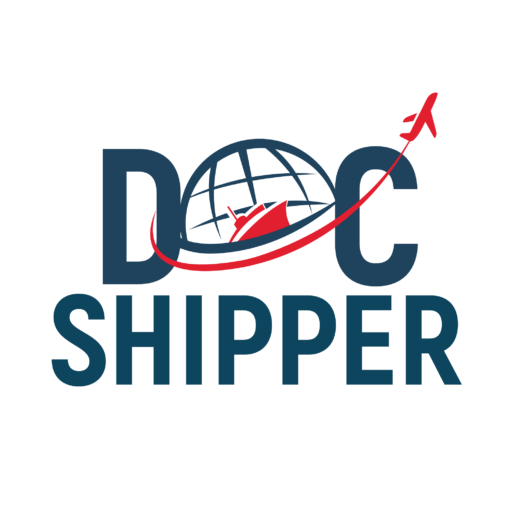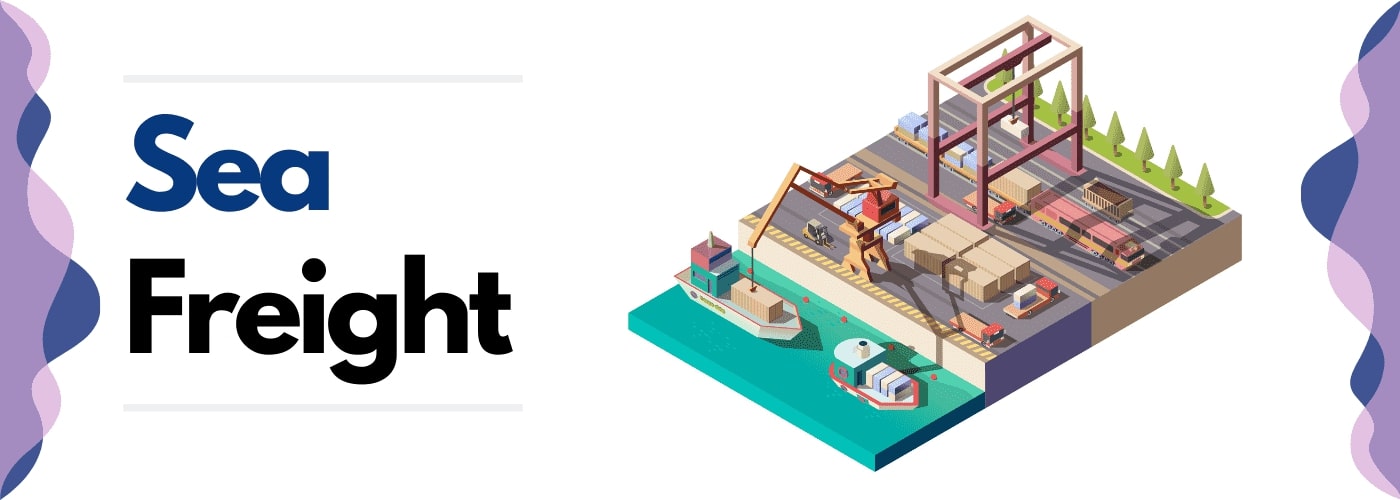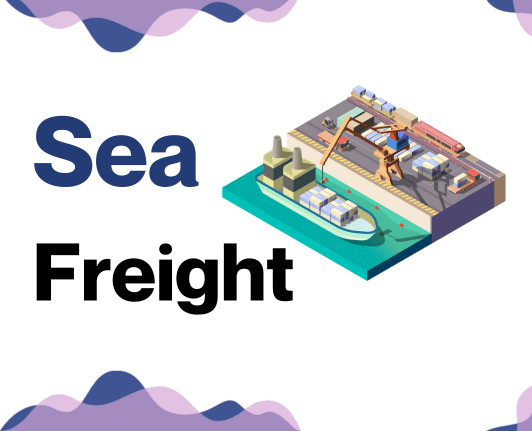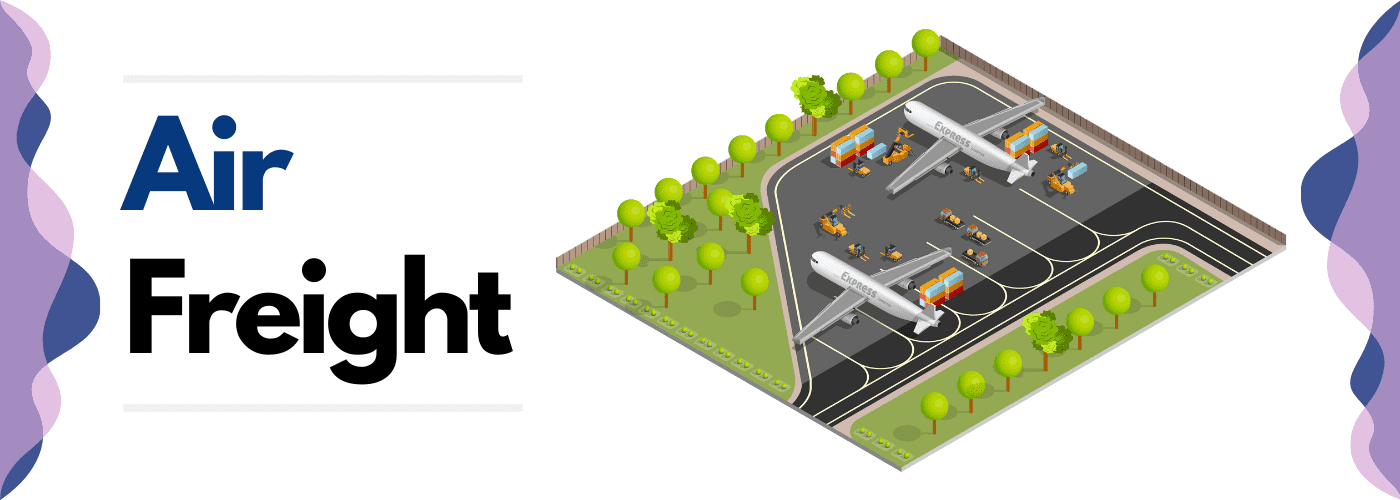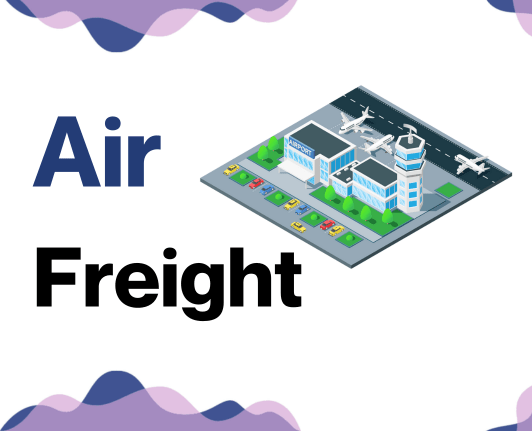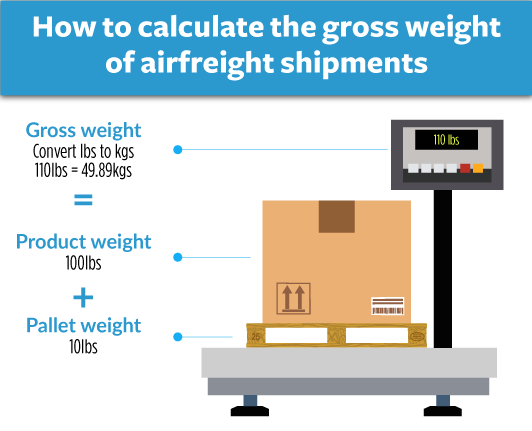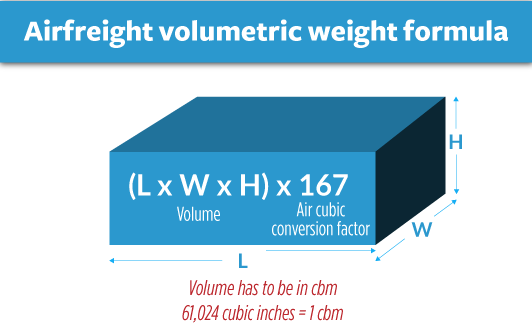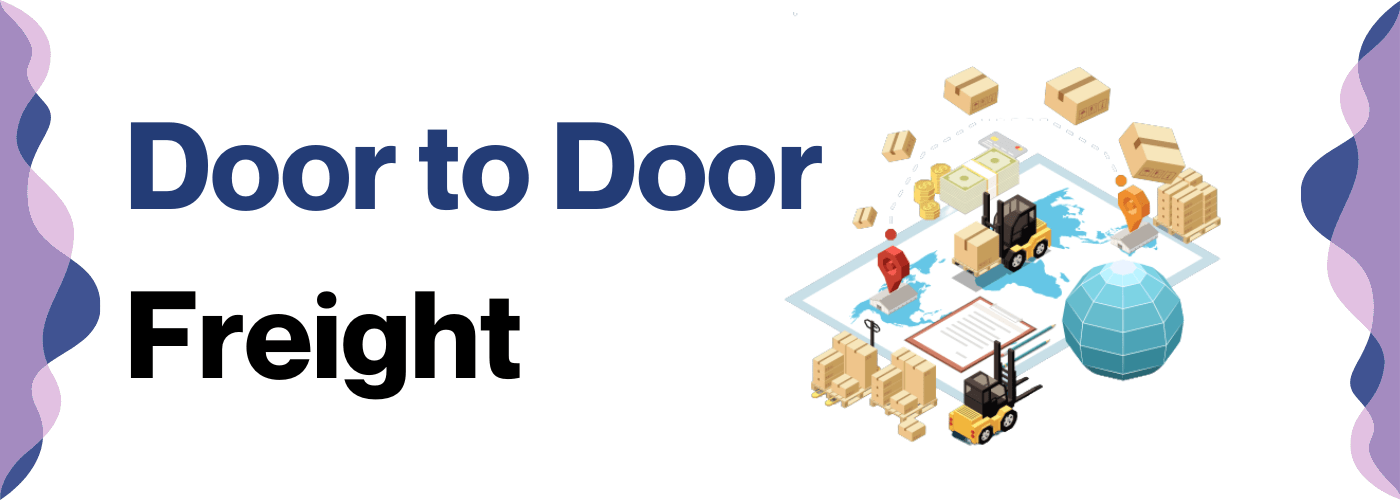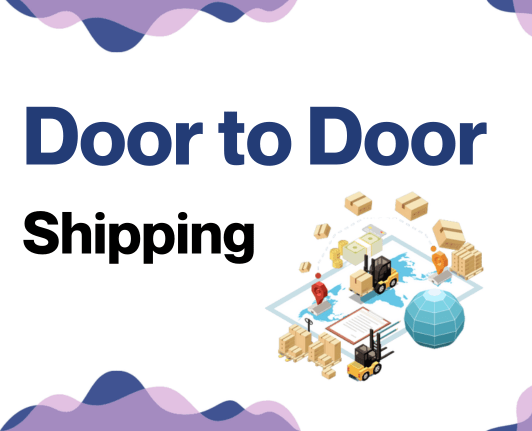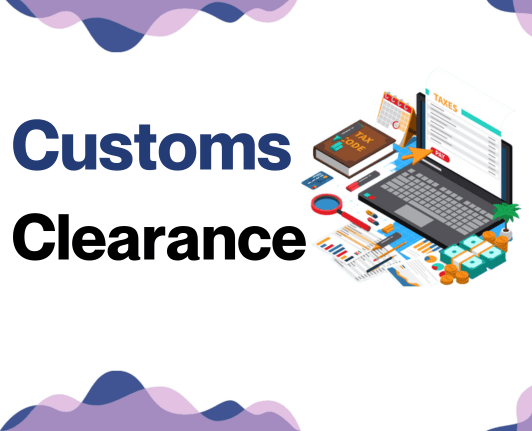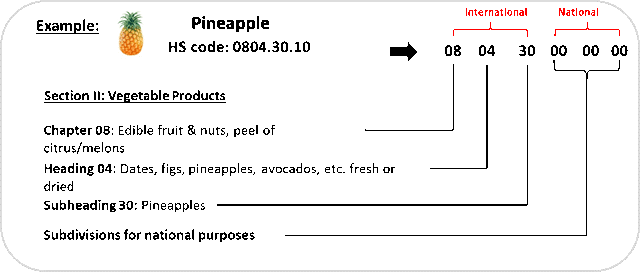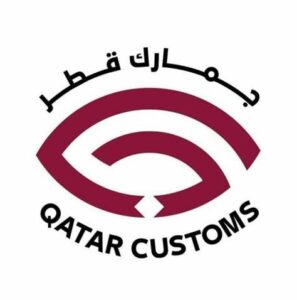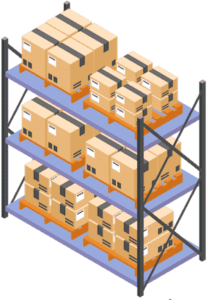No, camels aren’t your only option to ship goods from Qatar to Morocco! Understanding shipping rates, lengthy transit times and complex customs regulations can seem like traversing through an unnavigable desert. With this in-depth destination guide, say goodbye to your logistical nightmares as it aims to shed light on the journey from Doha to Casablanca. Catch the expert insights on freight options - be it air, sea, road, or rail- and learn how to maneuver through the twisting lanes of customs clearance, duties, and taxes. Breeze through our tailored advice specially compiled for businesses aiming to thrive in this cross-continental exchange. If the process still feels overwhelming, let DocShipper handle it for you! We are an international freight forwarder taking care of every step in your shipping journey, committed to transforming your business challenges into success stories.
Which are the different modes of transportation between Qatar and Morocco?
Gazing at the world's map, you'll notice Qatar, a pearl on the Arabian Peninsula, and Morocco, the North African jewel, are worlds apart—literally. The great expanse of land and sea between them poses unique shipping challenges. Sea freight, a logistical titan, can nimbly glide through these challenges, while air freight's formidable speed may make it your second go-to transportation option. Picking the right method is key—it's like choosing the best camel for a desert journey, ready to meet the heat and handle heavy loads without losing speed. They're made for this trip, and so is your shipment when you pick the right transport.
How can DocShipper help?
Experiencing hurdles with your Qatar-Morocco shipments? Let DocShipper ease your journey. Our expert team is equipped to handle everything from transport organization to customs clearance procedures. No more shipping headaches. Curious about how we can streamline your logistics? Reach out for a free estimate in under 24 hours. For any burning queries, feel free to call our consultants at no cost.
DocShipper Tip: Sea freight might be the best solution for you if:
- You're dealing with hefty quantities or large-scale goods. Sea freight is your go-to for maximizing space without stretching your budget.
- Your cargo doesn't have an urgent deadline, as sea freight typically has longer transit times compared to air or rail.
- Your shipping routes are between major ports, allowing you to leverage the extensive global network of sea shipping lanes.
Sea freight between Qatar and Morocco
Ocean shipping between Qatar and Morocco presents a unique set of logistical opportunities and challenges. Embracing a relationship that bridges the gap between the thriving industrial landscape of Qatar's Ras Laffan Industrial City and Morocco's towering Port of Casablanca, sea freight emerges as the economical solution for high-volume goods despite its slow nature. Imagine traveling in a bus during rush hour with a cost-effective ticket; it's slower but gets you to your destination without compromising your budget. However, this international trade route, comparable to a dense jungle, has its share of roadblocks. Shippers often grapple with numerous difficulties, including administrative headaches and missteps in customs clearance. Yet, amidst this labyrinth of challenges, certain best practices pave the way for a smoother journey. Like having a compass, knowledge of these practices and specific regulations can steer your company away from potential pitfalls. In this guide, we'll illuminate the path to streamline your maritime freight between Qatar and Morocco.
Main shipping ports in Qatar
Port of Hamad
Location and Volume: Located in Umm Al Houl, just south of Doha, the Port of Hamad is the primary shipping port in Qatar, handling the majority of the country's cargo. This port was designed to accommodate the largest vessels and has a shipping volume in excess of 2 million TEUs per annum.
Key Trading Partners and Strategic Importance: The Port of Hamad is pivotal to the Qatari economy, predominantly serving trading partners from South Asia, Africa, and Europe. The port also has a terminal dedicated to livestock, emphasizing its regional importance in trade.
Context for Businesses: If you're planning on expanding to Middle Eastern markets, then the Port of Hamad, with its modern infrastructure and extensive capacity, may be an integral part of your shipping strategies.
Port of Ras Laffan
Location and Volume: Situated on the North-East coast of Qatar, the Port of Ras Laffan is a major hub for the Liquefied Natural Gas (LNG) and petrochemical industries. With 6 LNG berths and serving both offshore and onshore operations, it has significant handling capacity.
Key Trading Partners and Strategic Importance: Ras Laffan's main trading partners are in Asia, especially Japan and China, reflecting the global energy market's structure. A noteworthy milestone is the 10,000th LNG vessel loading since its operation began in 1996.
Context for Businesses: If you're involved in the energy sector, particularly in LNG, the Port of Ras Laffan offers a key route to substantial Asian markets and might be a valuable addition to your strategic supply chain.
Port of Al Ruwais
Location and Volume: Al Ruwais Port, located on the northernmost tip of Qatar, is a relatively smaller port, with a prominent focus on fishing and pearl diving. It's accessible to load and ships of up to 200 meters in length.
Key Trading Partners and Strategic Importance: While not a sizable player in terms of international trade, the Port of Al Ruwais plays a strategic role for routes to Iraq, especially for smaller cargo loads.
Context for Businesses: For those businesses eyeing new opportunities for small-scale exports to Iraq or the neighboring Gulf region, leveraging the Port of Al Ruwais in your shipping operations could offer a cost-effective solution.
Main shipping ports in Morocco
Port of Casablanca
Location and Volume: Positioned in Casablanca, the economic capital of Morocco, this port is indispensable for Moroccan trade, handling about 21.3 million tons of cargo annually.
Key Trading Partners and Strategic Importance: The port's key trading partners include Spain, France, Italy, and USA. Being the largest port in Morocco, it holds strategic importance for import/export and commercial activities in the country.
Context for Businesses: If your business aims to penetrate North African markets, Port of Casablanca can be a significant part of your strategy, considering its direct maritime links to several international ports and advanced infrastructure.
Port of Agadir
Location and Volume: Situated on the Atlantic Ocean in the southern part of Morocco, the Port of Agadir, handling 3.4 million tons of cargo, plays a vital role in the region's economy.
Key Trading Partners and Strategic Importance: Key trading partners include the European Union, South America, and Asia. Thanks to its geographical orientation, it serves as a gateway to Saharan and sub-Saharan Africa.
Context for Businesses: Should your business strategy involve growth in African markets, particularly Saharan and Sub-Saharan regions, the Port of Agadir’s position provides a significant logistical edge.
Jorf Lasfar Port
Location and Volume: Located south of Casablanca, Jorf Lasfar Port specializes in handling mineral and chemical cargoes, moving around 24 million tons each year.
Key Trading Partners and Strategic Importance: Key trading partners encompass European and Asian countries. Due to its specialization in mineral handling, the port carries significant strategic importance for businesses in the mining sector.
Context for Businesses: If your company deals with mineral or chemical trading, this port could be of immense value for your logistics, given its specialization and extensive handling capacity.
Port of Tangier Med
Location and Volume: Settled on the Strait of Gibraltar, the Port of Tangier Med is a major logistics hub for Morocco, handling a massive 3.4 million TEU.
Key Trading Partners and Strategic Importance: Key trading partners include the Mediterranean countries, Europe, and Asia. The port is strategically located at the intersection of major shipping lanes, increasing its importance in global trade.
Context for Businesses: If your business aspires to reach European and Mediterranean markets with time efficiency, Tangier Med port's strategic position and capacity may be your solution.
Port of Mohammedia
Location and Volume: Sited in the Casablanca region, the Port of Mohammedia is the main hydrocarbon port, contributing to about 10.6 million tons of cargo processed each year.
Key Trading Partners and Strategic Importance: Its key trading partners are based primarily in Europe. As a major hydrocarbon port, it holds significance for businesses engaged in petroleum-related products.
Context for Businesses: If you're in the petroleum business, the Port of Mohammedia's specialization in hydrocarbons can suit your logistics needs perfectly.
Port of Nador
Location and Volume: Positioned on the northeastern coast of Morocco near the Algerian border, Port of Nador is pivotal for goods distribution in the northern region. It moves around 2.3 million tons yearly.
Key Trading Partners and Strategic Importance: It primarily serves trading partners within the Mediterranean area, and due to its geographical location, it facilitates trade with Algeria.
Context for Businesses: If you're seeking to strengthen your trading prospects in Algeria and further into North African markets, the Port of Nador might be advantageous for your shipping plans.
Should I choose FCL or LCL when shipping between Qatar and Morocco?
Choosing between consolidation (LCL) and full container loads (FCL) for your sea freight shipping journey from Qatar to Morocco is high stakes strategy. Every decision impacts cost, timeline, and the overall success of your shipments. Peel back the mystery and balance the scales with our informative dive into LCL and FCL. Get ready to understand their unique traits, compare benefits, and align these options with your specific business needs. Empower your shipping decision for smoother sails and stronger growth. Knowledge is power, let's unlock yours!
LCL: Less than Container Load
Definition: LCL (Less than Container Load) shipping refers to a method whereby your cargo is consolidated with others in a single container, a practical option when you do not have enough goods to fill a full container.
When to Use: This option is most suitable when your cargo is less than 13/14/15 CBM (cubic meter). It provides price flexibility for lower volume shipments, making it cost-effective and allowing for more manageable logistics due to regular departures.
Example: Let's say you're a wood furniture manufacturer in Qatar shipping a small batch of products to a client in Morocco. Filling a full container isn't feasible, thus, an LCL shipment could be your best bet. It would allow you to share container space with other businesses, reducing your expenses.
Cost Implications: While LCL gives you cost flexibility by charging only for the space you use, keep in mind consolidation and de-consolidation fees. LCL freight can be higher on a per unit basis compared to a full container load. However, for smaller volume shipments, the overall cost typically comes lower than shipping a partly filled container.
Remember, choosing between LCL and FCL depends on the specific needs of your shipment.
FCL: Full Container Load
FCL (Full Container Load) shipping is a method in which an entire container is used by one shipper for sending their goods.
Choosing FCL when shipping between Qatar and Morocco is typically beneficial for high-volume shipments. If your cargo is more than 13/14/15 CBM (Cubic Meters), then using FCL might be more cost-effective. FCL is also deemed safer as your goods are sealed within a container for the entirety of the trip, minimizing potential damages.
For instance, imagine you own a furniture business and need to ship a large order of couches from Qatar to Morocco. You would likely opt for an FCL shipment, using either a 20'ft or 40'ft container depending on the volume of your goods.
FCL shipping quote can vary, but remember, high volume shipments are generally cheaper compared to LCL (Less than Container Load). The costs depend on a variety of factors, including the size of the FCL container (20'ft or 40'ft), the nature of the goods, and the distance between origin and destination. Therefore, consider these factors when estimating the costs for your shipment. In this case, despite the fact that FCL container's initial costs may seem high, the cost per unit could be relatively low for large volumes.
Unlock hassle-free shipping
Looking for seamless, worry-free cargo shipping between Qatar and Morocco? With DocShipper by your side, this complex process becomes simple. Our ocean freight experts help you make an informed decision, considering factors like the volume, time, cost-effectiveness, and urgency of your cargo. Be it consolidation or a full container, trust us to guide you to the right choice. Why wait? Get started with a free estimation from DocShipper today!
How long does sea freight take between Qatar and Morocco?
Sea freight shipping from Qatar to Morocco typically takes an average of around 16-23 days. This timeline varies depending on several factors such as the specific ports being used, the weight, and the type of goods being shipped. It's highly recommended for businesses to get in touch with a trustworthy freight forwarder like DocShipper for a personalized and more accurate quote.
| Qatar Ports | Morocco Ports | Average Transit Time (Days) |
| Hamad Port | Tangier Med Port | 16 |
| Hamad Port | Jorf Lasfar Port | 18 |
| Doha Port | Casablanca Port | 20 |
| Doha Port | Agadir Port | 23 |
*Remember, these are average times and actual transit times may vary. For the most accurate information, always contact your freight forwarder.
How much does it cost to ship a container between Qatar and Morocco?
Determining the precise ocean freight rates from Qatar to Morocco can feel as vast as the sea itself, with prices potentially ranging from $50 to $500 per CBM, or even more. The flux in shipping cost is influenced by a mix of factors that include the Points of Loading and Destination, the carrier chosen, inherent nature of your goods, and unpredictable monthly market swings. While this might appear complex, fear not! Our adept shipping specialists are here to dive in and analyse each unique case, ensuring we anchor you the most cost-effective prices. Your logistics journey starts with us - smooth sailing guaranteed!
Special transportation services
Out of Gauge (OOG) Container
Definition: An OOG container is an open-top or flat-rack container designed for cargo that doesn't fit in regular shipping containers due to size or shape. It is perfect for accommodating out of gauge cargo that needs special attention.
Suitable for: Machinery, industrial equipment, construction materials, or any oversized items that surpass the measurements of a standard container.
Examples: Large machinery parts, structural steel, windmill blades.
Why it might be the best choice for you: If you're moving large, heavy goods that can't be dismantled, OOG cargo shipping may be the optimal solution. It eliminates potential disassembly costs and the risk of damaging goods during the dismantling/reassembly process.
Break Bulk
Definition: Break bulk refers to goods that need to be loaded individually rather than in containers, often using cranes or other special equipment. These are typically large, heavy items that aren't suited to conventional containers.
Suitable for: Non-containerised load, large and heavy cargo, or commodities in bags or bundles.
Examples: Boats, turbines, cranes, large reels of cable.
Why it might be the best choice for you: If your cargo is too large to fit into containers and can withstand exposure to the elements, break bulk shipping might be the method that safeguards your items better while providing the necessary transportation efficiency.
Dry Bulk
Definition: Dry bulk refers to commodities that are shipped loose in the hull of a ship without any kind of packaging. Dry bulk vessels are designed specifically to carry unpackaged cargo.
Suitable for: Unpackaged, loose cargo load like coal, grain, or ore.
Examples: Sand, fertilizers, plastic granules.
Why it might be the best choice for you: If your business deals with loose, dry commodities in large quantities, dry bulk shipping can be the most cost-efficient and convenient solution as it allows for direct loading and unloading from the source to the destination.
Roll-on/Roll-off (Ro-Ro)
Definition: Roll-on/Roll-off shipping, commonly known as Ro-Ro, involves vessels designed to carry wheeled cargo like cars, trucks or trailers. The ro-ro vessel's built-in ramps allow vehicles to be driven directly on and off the ship.
Suitable for: Motor vehicles, caravans, heavy plant machinery, wheeled machinery or any cargo that rolls.
Examples: Trucks, tractors, buses, RVs.
Why it might be the best choice for you: If you have movable equipment or vehicles that can roll on and off the vessel, Ro-Ro is the best choice. It provides a simple and efficient way to handle your cargo with minimal lifting.
Reefer Containers
Definition: Reefer containers, or refrigerated containers, are used for goods requiring temperature-controlled transportation. They provide consistent cooling and freezing capabilities throughout the shipping process.
Suitable for: Perishable goods like fresh or frozen foods, medicines, and certain chemicals.
Examples: Fresh fruits, vegetables, fish, meat, dairy products, pharmaceuticals.
Why it might be the best choice for you: If your goods are temperature-sensitive, a reefer container can maintain the quality and safety of your products all the way to their destination.
Still not sure which sea freight shipping option would suit your cargoes from Qatar to Morocco or vice versa? DocShipper is here to help. Contact us for a free shipping quote in less than 24 hours. Our logistics team will advise you on the best approach tailored to your unique shipping needs.
DocShipper Tip: Air freight might be the best solution for you if:
- You're up against the clock or have a non-negotiable delivery date. Air freight is your fastest bet for meeting tight timelines.
- Your shipment is on the smaller side, falling below 2 CBM. Air freight is particularly well-suited for compact cargo loads.
- Your goods are destined for locations that aren't well-served by maritime or rail options. Air freight expands your reach by connecting you to a vast array of international airports.
Air freight between Qatar and Morocco
When you're shipping valuable artifacts from Qatar to Morocco, air freight does the job like a superhero. It's fast, reliable, and swoops in to rescue small, high-value packages. Think of shipping a Qatari pearl necklace or high-tech gadgets; air freight is their personal bodyguard, ensuring they reach the souks of Marrakech right on schedule.
However, don't leap into it like a first-time skydiver. Many shippers overlook key factors and end up paying a hefty price, not unlike a harsh landing. Misjudging the weight formula is a common blunder that can inflate costs. It's like assuming an elephant weighs the same as a horse; you'll end up incurring the weight of your mistake. Let's dive into best practices to avoid such sky-high errors.
Air Cargo vs Express Air Freight: How should I ship?
Looking to breeze through the clouds with your goods from Qatar to Morocco? Knowing your options is important. Air Cargo moves items cost effectively in an airline along with passengers; it's like the bus of the skies. On the other hand, Express Air Freight gives your goods their own dedicated plane, a bit like renting a private jet for your products. Let's delve into which option might give your business wings.
Should I choose Air Cargo between Qatar and Morocco?
Selecting air cargo for transporting goods between Qatar and Morocco can be a wise decision, particularly for shipments exceeding 100/150 kg (220/330 lbs). Prominent airlines such as Qatar Airways and Royal Air Maroc provide reliable air freight services. Although air cargo can entail longer transit times due to fixed schedules, the cost-effectiveness and reliability often outweigh the additional waiting period. This choice might suitably match your budgetary needs with the assurance of a trustworthy service, making it an attractive choice for optimal freight management. Please remember, trade regulations vary, and customs officials will play a significant role in determining shipping costs.
Should I choose Express Air Freight between Qatar and Morocco?
When shipping goods between Qatar and Morocco, express air freight might be your go-to option. It uses dedicated cargo planes, sans any passengers, to quickly transport shipments under 1 CBM or 100/150 kg (220/330 lbs). This can be an ideal choice for businesses needing fast, efficient delivery. Leading international couriers such as FedEx, UPS, or DHL are known for providing reliable express air freight services. If swift delivery of lightweight goods is paramount to your business operations, this service is worth considering.
Main international airports in Qatar
Cargo Volume: Hamad International Airport handles approximately 2.5 million tons of cargo annually.
Key Trading Partners: Key trading partners include China, the United States, Germany, the United Kingdom, and UAE among others, reflecting Qatar's extensive global network.
Strategic Importance: Located in Doha, it's the primary airport of Qatar and a key operational hub for many airlines, notably Qatar Airways. Its strategic location in the Middle East connects Eastern and Western markets.
Notable Features: The airport offers state-of-the-art cargo facilities and services. It has two parallel runways that can cater simultaneously to large cargo planes like the A380. The Cargo Terminal Complex is a climate-controlled area for maintaining different temperature zones for various types of goods.
For Your Business: If you're shipping high-value or temperature-sensitive commodities like pharma, fine arts, valuables, and perishables, Hamad International Airport provides cutting-edge facilities and capabilities for your shipping needs. With its central location, it’s a prime gateway for reaching customers both in the east and the west swiftly.
Main international airports in Morocco
Mohammed V International Airport
Cargo Volume: As Morocco's busiest airport, Mohammed V International handled approximately 9.7 million passengers and 250,000 tons of cargo in 2023
Key Trading Partners: Key cargo destinations include France, Spain, Germany, and the United Arab Emirates, amongst others.
Strategic Importance: Located in Casablanca, it's strategically positioned as a gateway not only to Morocco but to Africa and Europe as well.
Notable Features: It offers a freight hub area of 43,000 m², with a dozen certified cargo airlines operating, giving it significant capacity.
For Your Business: If you're planning to regularly ship good volumes to Europe and Africa, this airport can be a reliable and efficient choice given its high capacity and central location.
Tangier Ibn Battouta Airport
Cargo Volume: Despite being a smaller airport, it still moved 3,000 tons of cargo in 2023 signaling its viability for smaller-scale operations.
Key Trading Partners: It majorly handles cargo bound for Europe, with Spain as the top recipient.
Strategic Importance: Its location in northern Morocco makes it a pivotal link for traffic between Morocco, Europe, and other international destinations.
Notable Features: While lesser in capacity than Mohammed V Airport, it still features all necessary cargo handling resources and capabilities.
For Your Business: If you're conducting business primarily in Northern Africa and Spain, this airport can provide ease and flexibility due to its strategic location and resources.
Marrakesh Menara Airport
Cargo Volume: Handled around 2,500 tons of cargo in 2023, making it one of Morocco's key cargo airports.
Key Trading Partners: Main trade routes are within Europe and Northern Africa, specifically France and Spain.
Strategic Importance: Located in Marrakesh, is a central hub for many airlines, serving as a connecting point between domestic and international travel.
Notable Features: Supports several airlines both from Morocco and international carriers, thus providing ample room for diverse shipping needs.
For Your Business: If your shipping operations are concentrated within Morocco and nearby European countries, this airport offers a good balance between capacity and connectivity.
Cargo Volume: Managed 1,5 tons of cargo in 2023 and continues to grow.
Key Trading Partners: Major trading partners are countries in Europe, particularly Germany and the United Kingdom.
Strategic Importance: Located conveniently near the popular tourism and business city of Agadir.
Notable Features: It boasts of top-notch cargo handling facilities and customs services.
For Your Business: It's an excellent choice for businesses in southern Morocco or for those targeting markets in Europe due to its prime location and quality services.
Rabat–Salé Airport
Cargo Volume: Smaller in scale, but consistently handling cargo in the hundreds of tons every year.
Key Trading Partners: Top cargo trading partners include neighboring countries like Spain and France.
Strategic Importance: Advantageously located in the capital city of Rabat, ensuring good connectivity domestically and internationally.
Notable Features: Provides necessary cargo handling facilities and a smoother customs process due to less congestion.
For Your Business: Ideal for small to medium-sized shipments seeking faster customs clearance times and efficient service. A viable choice especially if your business is based in Rabat or nearby regions.
How long does air freight take between Qatar and Morocco?
On average, air freight between Qatar and Morocco can take approximately 5-7 days. However, the total transit time for your shipment can be influenced by various factors such as the specific airports involved, the weight of your cargo, and the type of goods being shipped. For a more precise timeline, it would be prudent to consult with a knowledgeable freight forwarder like DocShipper.
How much does it cost to ship a parcel between Qatar and Morocco with air freight?
Estimating an average, air freight from Qatar to Morocco may range broadly between $3 to $6 per kilogram. However, keep in mind this is a very wide estimate. Several factors determine the actual cost including distance from the departure and arrival airports, parcel dimensions, weight, and nature of goods. For this reason, our team works closely with you to compute the most favorable rates, quoting on an individual basis. Your unique circumstances are always a core factor in our calculations. Don't hesitate to reach out and receive a free, no-obligation quote within 24 hours.
What is the difference between volumetric and gross weight?
Gross weight, simply put, is the total weight of a shipment, including packaging, pallets and any equipment used for transportation. On the contrary, volumetric weight is the calculation that expresses the amount of space your cargo takes in an aircraft.
To calculate the gross weight in air freight services, you simply weigh the entire package and record the result in kilograms (kg). For conversion, remember: 1kg equates to 2.20462 lbs.
On the other hand, the calculation for volumetric weight (also called dimensional weight) is the length x width x height (all in cm), divided by a standard divisor. In Air cargo service, this divisor is typically 6000, whereas in Express Air freight, the divisor is often 5000.
Here's an example: Let's say you're shipping a package of electronics. The gross weight comes in at 20kg (or 44.0924 lbs). The package dimensions are 50cm (length) x 40cm (width) x 30cm (height). For Air cargo service, the calculation would be (50cm x 40cm x 30cm) / 6000 = 10kg (or 22.0462 lbs) for volumetric weight. If we calculate for Express Air Freight service, your volumetric weight transforms to 12kg (or 26.4554 lbs).
Freight charges are where these calculations truly matter. Airlines will charge your shipment based on either the gross weight or volumetric weight, depending on which is higher. This ensures optimal use of their cargo space. Now, with this understanding, you have the tools to smartly pack your goods to minimize shipping costs.
DocShipper tip: Door to Door might be the best solution for you if:
- You prioritize a smooth, hassle-free shipping experience from start to finish. Door-to-door services manage the entire journey, from initial collection to ultimate delivery.
- You appreciate streamlined communication and would rather deal with one person. A dedicated agent is usually assigned to oversee every detail of your door-to-door shipment.
- You want limit the number of touchpoints for your cargo. Door-to-door services reduce the frequency of transitions between various transport methods, thereby lowering the likelihood of damage or loss.
Door to door between Qatar and Morocco
In the bustling shipping realm, Door-to-Door service is the all-inclusive way to smoothly move your goods from Qatar to Morocco, handling everything from origin to destination hassle-free. Imagine no hands-on logistics management and less stress - that's the magic of this method. Eager to find out if Door-to-Door shipping is your business's magic carpet ride? Let's dive in!
Overview – Door to Door
Worried about the complexities of shipping between Qatar and Morocco? Opt for our most sought-after service - Door to Door shipping. It brings a stress-free solution to this intricate process, managing all transport stages, customs clearance, and delivery to your final destination.
By eliminating the need to juggle multiple providers, you enjoy streamlined logistics. However, it's important to note that dependence on a single provider can pose risks. With DocShipper, you're delivered peace of mind along with your goods!
Why should I use a Door to Door service between Qatar and Morocco?
Imagine taking a magical carpet ride that whisks your goods from Qatar all the way to Morocco without you breaking a sweat - that's what a Door to Door service does, minus the flying carpet!
1. Stress-Free Logistics: No more tangled web of shipping norms and duties! Door to Door service transports your goods from point A to B, handling everything - customs, duties and administrative tasks. You're left with more time and fewer white hairs!
2. Swift and Timely Delivery: Remember the heart palpitations you experienced last minute fretting over delivery timelines? A Door to Door service ensures prompt delivery, preventing any logistical nightmares from coming true.
3. Specialized Care for Complex Cargo: Delicate or bulky goods? No problem! Enjoy peace of mind knowing that your unique cargo is handled with the expertise it deserves - seamlessly and professionally from pick-up to drop-off.
4. Convenience at Its Best: Kick back and relax! As the shipping team does all the heavy lifting, literally and metaphorically, your goods are trucked seamlessly to the final destination. The result? More convenience, less hassle!
5. Protection from Unexpected Expenses: Say adios to unwelcome financial surprises that often crop up in logistics. A Door to Door service absorbs these hidden costs, giving your budget a break it deserves.
In a nutshell, a Door to Door service between Qatar and Morocco is like your personal genie in the bottle of transportation – relieving stress, guaranteeing timings, protecting your goods, adding convenience and saving on unforeseen expenses!
DocShipper – Door to Door specialist between Qatar and Morocco
Unlock the stress-free way of shipping between Qatar and Morocco with DocShipper's comprehensive logistics solution. Our skilled and proficient team manages all, from packaging and transportation to customs clearance across all shipping channels.
We also assign you a dedicated Account Executive who ensures seamless delivery. Reach out today for a free estimate within 24 hours or consult with our experts free of charge! We're here to streamline your shipping experience from A to Z.
Customs clearance in Morocco for goods imported from Qatar
Customs clearance - a crucial step in global shipping, can feel like navigating a labyrinth when dealing with goods imported from Qatar to Morocco. As imperative as it is complex, the process is a minefield of potential unexpected fees, duties, taxes, quotas, or licenses. Misunderstanding any of these can risk your shipment getting caught in the customs net. But don't fret - our comprehensive guide will explore these areas and more!
Furthermore, DocShipper can offer hands-on help for any product anywhere globally. To get a project estimate, simply reach out to us with your product's origin, its value, and the harmonized system (HS) code - these three details are key. We're here to assist, so you can breeze through customs, not bumble.
How to calculate duties & taxes when importing from Qatar to Morocco?
Navigating the intricate landscape of import duties and taxes can feel like a daunting task, but fear not, it's simpler than it might seem.
The primary variables in this equation are the country of origin (where your goods were manufactured or produced), the Harmonized System (HS) code (an internationally standardized system of names and numbers to classify traded products), the Customs Value (the cost of the product including the cost of transport up to the port of entry, and cost of insurance), the Applicable Tariff Rate (the rate at which the product is taxed), and any additional taxes or fees that may apply to your product. Let's get started with the first step, which is determining the country where your goods originated.
This is crucial as it sets the ground for all future calculations, and it ties into the rules and regulations set by international trade agreements.
Step 1 - Identify the Country of Origin
Identifying the Country of Origin gives clarity on five pivotal points that directly shape your shipping experience from Qatar to Morocco.
First, it helps to determine the trade agreements that exist between the two countries. Crafted to boost trade and economic ties, these agreements can significantly reduce or even eliminate customs duties. Second, it allows you to anticipate and prepare for specific import restrictions that may apply due to the relations between the two countries.
Third, it aids in correct tariff classification, affecting precisely how much you might pay in duties. Fourth, it paves the way towards accurate duty and tax calculations, securing a smooth customs clearance process. Lastly, the Country of Origin plays a large role in dispute resolution in case any issues arise during shipping.
In the context of Qatar and Morocco, both are Arab League members, which promotes inter-Arab trade and can potentially cut down customs duties.
Keep a keen eye out for regulated goods. Certain items, like agricultural products, face distinct rules. For error-free and cost-effective shipping, familiarize yourself with these aspects. Your import-export journey starts with knowing your goods' Country of Origin. It's the cornerstone of a smooth shipping experience.
Step 2 - Find the HS Code of your product
Understanding the Harmonized System (HS) Code of your product is a crucial first step in international shipping. Originating from the World Customs Organization, the HS Code is a universal classification system for goods. This six-digit code helps identify the nature of products being traded globally, assisting in the calculation of tariffs and duties at customs.
Often, the easiest method to acquire your product's HS code is directly through your supplier. They are typically well-versed in the goods they're importing and well aware of the relative regulations.
However, if obtaining this information from your supplier is not viable, don't worry, you can easily find it yourself. We've outlined a simple step-by-step process here:
1. Navigate to this Harmonized Tariff Schedule tool.
2. Type your product's name into the search bar.
3. Review the results, specifically looking for the Heading/Subheading column. This will contain your product's HS code.
Please take note: accuracy when determining the HS Code is of utmost importance. Any imprecision could result in unexpected delays in delivery and may even incur potential fines. Ensuring the correct code from the outset significantly streamlines and safeguards the shipping process.
Now that you know where to find and how important the HS code is for your imported good, here's an infographic showing you how to read an HS code. Familiarizing yourself with the coding system guarantees a smoother, more informed shipping experience.
Step 3 - Calculate the Customs Value
You might be wondering, 'What's this Customs Value?' It's not simply the price tag on your goods. Rather, in the eyes of Moroccan Customs, it's the Cost, Insurance, and Freight (CIF) value. A $5000 sofa from Qatar isn't seen as $5000, but it includes the cost of the product itself + international shipping costs + insurance cost. For example, let’s say shipping costs are $100 and insurance is $50. Your customs value becomes $5150. It's crucial to understand this concept as it forms the basis for calculating customs duties and taxes. So, when you're budgeting for your Moroccan import venture, remember to consider these additional costs alongside your goods' purchase price. Overlooking this could potentially turn a profitable deal into a costly mistake.
Step 4 - Figure out the applicable Import Tariff
Import tariffs, often known as customs duties, are charges levied on goods imported into a country. To navigate the customs terrain in Morocco, you need to understand the Harmonized System (HS), which is an internationally standardized system of names and numbers to classify traded products.
In Morocco, an HS code might look like 1234.56.78; the first six digits are universal, while the last two are country-specific, providing more detailed categorizations.
Let's take 2204.21.00, for example, the HS code for red wines. To find the applicable tariff, you'd need to explore Moroccan customs websites or reach out to a professional customs broker.
For the sake of the example, let's assume the tariff rate provided is 25%. The overall amount payable (in USD) would be based on the cost, insurance, and freight (CIF) value of the goods. If your CIF cost is, say, $10,000, your import duties would be $2,500 (0.25x$10,000).
Remember, accuracy in calculating these figures is vital, as mistakes can lead to overpayment or legal conflicts, both causing unnecessary delays.
Step 5 - Consider other Import Duties and Taxes
In addition to regular customs tariffs, importing goods from Qatar to Morocco could also be subject to other import duties and taxes, which vary according to the product's nature and country of origin. Here's how it can play out:
Take for example a shipment of electronics worth $10,000. In Morocco, there's an excise duty on such goods which might be, say, 15%. This means an additional $1,500.
Next, if an anti-dumping tax applies, this may further increase costs. Say this tax is 5%, adding another $500.
Most essential to account for is the Value Added Tax (VAT). Suppose it's 20% in Morocco. You'd calculate it by adding the cost of your goods, transportation, insurance, and any import duties. Let's assume a transport and insurance cost of $2,000, and import duties of $2,000, the VAT would be 20% of $14,000 ($10,000 + $2,000 + $2,000), totaling $2,800.
So, what appeared to be a simple calculation can quickly become complicated. Always ensure you are aware of additional costs potential to avoid any unpleasant surprises. Remember, these are hypothetical figures meant for illustration, for actual rates please consult a local custom duty expert or freight forwarder.
Step 6 - Calculate the Customs Duties
Jumping into Step 6, here's a deep dive into how you can calculate Customs Duties for your goods shipped from Qatar to Morocco. The fundamental formula involves three main components: customs value, VAT, and sometimes, anti-dumping taxes.
Let's say you're shipping goods valued at $5000, with a 10% customs rate. Your total customs duties would be $500 ($5000*10%). In this example, there are no VAT charges.
Now, if these same goods are also subject to a 20% VAT, you'll need to first calculate your customs duties ($500), then calculate VAT on the sum of the customs value and duties ($6000 20%), totaling $1200. Your complete duty would then be $1700 ($500+$1200).
In another case, oil tanks valued at $7000 are not only subjected to customs duties and VAT, but also anti-dumping taxes at 10% and a 25% excise duty. Here, calculate customs duties ($700), VAT ($1680), and dumping taxes($700), and excise duty ($1750). Your entire tax fee would be $4830.
Remember: calculations like these are complex and errors can lead to unnecessary costs. At DocShipper, we specialize in accurate customs calculations. Contact us today for a free quote within 24 hours, and let us manage your customs clearance all around the world, ensuring you pay no more than what is rightly due. Avoid the hassle and trust us to get your goods through customs swiftly and securely!
Does DocShipper charge customs fees?
DocShipper, your customs broker in Qatar and Morocco, streamlines your logistics by handling customs clearance fees. However, these are different from customs duties, which are paid directly to the government and vary per shipment. Rest assured, we provide all the necessary official documents from the customs office, ensuring transparency that you're only paying government-designated charges. For example, if you're shipping electronics to Morocco, you'll receive itemized documents listing all customs duties imposed by the government, separate from DocShipper's service fee. This transparency allows for an improved understanding of the charges you're incurring.
Contact Details for Customs Authorities
Qatar Customs
Official name: General Authority of Customs
Official website: http://www.customs.gov.qa/
Morocco Customs
Official name: The General Administration of Customs and Indirect Taxes
Official website: http://www.douane.gov.ma/
Required documents for customs clearance
Stumped by the maze of paperwork for your cargo? You're not alone. Let's demystify the infamous documents - Bill of Lading, Packing List, Certificate of Origin, and Documents of Conformity (CE standard). These are crucial keys to ensuring a smooth sailing customs process. Buckle up, it's time to get you cleared with confidence!
Bill of Lading
When you're shipping goods between Qatar and Morocco, the Bill of Lading is your best friend. It's more than just a receipt; it's a legally-binding contract between the shipper and the carrier, signifying a shift in ownership and marking your goods’ journey. For your air cargo, the Bill of Lading counter-part is the Airway Bill (AWB). You can skip the paper headache and opt for a telex (electronic) release that speeds up the customs process significantly, particularly helpful when you're racing against time. Remember, meticulous documentation functions as a safety net for your shipment, preventing disputes and mix-ups. Review them like your business depends on it—because often, it does.
Packing List
When you're shipping goods from Qatar to Morocco, your Packing List is key. It's more than a mere inventory – it's the lifeline of your shipment. As a shipper, it's your duty to ensure its accuracy. Whether you choose sea or air freight, this document details what's inside your consignment, the type, and quantity. That's 200 widget parts, not 2! Imagine a situation where customs officials are checking your goods. Without an accurate Packing List, your shipment could be stuck, causing delays. So jot down every single item, double-check, and then check again - because a well-detailed Packing List means smooth sailing (or flying!) for your goods from Qatar to Morocco.
Commercial Invoice
Navigating customs between Qatar and Morocco becomes smoother when your Commercial Invoice is up-to-scratch. This mighty paper bears crucial info about your goods, like informative descriptions, HS codes, and pricing details, paving the way for a smooth customs clearance process. Remember, alignment with other shipping docs, such as the packing list, is paramount - discordance can cause delays. Experiencing mishaps with Harmonized System codes? These universal identifiers are vital, so use the World Customs Organization's HS Database to find the precise codes for your cargo. Tailoring these elements of your Commercial Invoice to the unique challenges of your business journey between Morocco and Qatar will help streamline your freight adventure.
Certificate of Origin
When shipping between Qatar and Morocco, the Certificate of Origin (CoO) serves a pinnacle role. It's more than just a piece of paper - it's your golden key to unlocking potential benefits, such as preferential customs duty rates. Imagine you're sending cargo of Qatari aluminum to Morocco. That much-needed CoO will state its country of manufacture, affirming its origin. Without it, you could be faced with a costly delay at customs or, worse, denial of entry. But, produce one that certifies your goods were indeed made in Qatar and voila, you're not just easing customs clearance, you're also opening a door to duty reductions. Your shipping process just got smoother and lighter on the pocket. Get that CoO and keep your goods sailing smoothly.
Certificate of Conformity (CE standard)
When shipping goods between Qatar and Morocco, obtaining a Certificate of Conformity (CoC) is essential. The CoC acts as a passport for your goods, assuring Moroccan customs that they adhere to their specific standards and regulations. This differs from quality assurance, which is an internal measure of fit-for-purpose. While there's no direct US equivalent, the FCC mark for electronic goods serves a similar purpose. To ensure smooth customs clearance, contact your testing and certification body immediately upon deciding to export to Morocco. They'll advise you on measures to achieve conformity, saving you time and reducing the risk of shipment delay.
Get Started with DocShipper
Overwhelmed by complex customs procedures between Qatar and Morocco? Let our experts at DocShipper step in. We facilitate smooth customs clearance, ensuring a hassle-free shipping experience. Don't get stuck in paperwork pile-up, let us handle it all for you. Ready to make shipping a breeze? Contact us to get a free quote within 24 hours. Your international shipping solution is just a click away.
Prohibited and Restricted items when importing into Morocco
Shipping goods to Morocco? You don't want your items held up at customs! Being aware of the dos and don'ts, particularly related to prohibited or restricted goods, can save you from countless hassles. Our guide clarifies these boundaries to ensure a smooth import process.
Restricted Products
- Telecommunication Equipments: You have to apply for a permit from the National Agency of Telecommunications (ANRT).
- Pharmaceutical Products: A special license from the Ministry of Health in Morocco is required.
- Live animals and animal products: You have to get a permit from the National Office for Food Safety (ONSSA).
- Arms and Ammunition: These require a special license from the Ministry of Interior, Morocco.
- Plant-based Products: Any plan-based goods require a permit obtained from the Moroccan Ministry of Agriculture, Rural Development and Fisheries.
- Precious Metals and Stones: A permit has to be applied for from the Ministry of Mines, Energy and Environment.
- Radioactive Materials: The Moroccan Agency for Nuclear and Radiological Safety and Security provides the required permit.
- Tobacco and Alcohol: You must apply for a license from the Moroccan Customs Administration.
- Cultural Artifacts: Ministry of Culture in Morocco grants the necessary permit.
Prohibited products
- Counterfeit items or goods - any merchandise that violates copyrighted or trademarked materials.
- Illegal substances - includes narcotics, illegal drugs, and certain types of pharmaceuticals without proper documentation.
- Pornographic material - this extends to books, magazines, films, photos, etc.
- Weapons and explosives - includes firearms, ammunitions, knives, military weapons, and explosives.
- Hazardous materials - includes toxic, corrosive, or flammable substances.
- Cultural artifacts and valuable artworks - unless a specific permit or document proves provenance and permission to export from the country of origin.
- Endangered species of animals or plants - includes living or dead specimens, and parts or derivatives, unless accompanied by a CITES permit.
- Currency - both local and foreign, exceeding an amount equivalent to over 100,000 Moroccan dirhams must be declared on arrival.
- Items that could be used to disrupt public order - could include certain types of technology or religious texts that are not approved by the Moroccan Government.
- Food items - certain kinds of food products are prohibited due to health and safety reasons. It's best to refer to the specific guidelines from Moroccan customs.
Are there any trade agreements between Qatar and Morocco?
Yes, the Agadir Agreement, a free trade agreement between Qatar, Morocco, and other Arab countries, allows duty-free access to their markets. This can significantly lower the cost of your shipments. Additionally, the 'Arab Quartet' initiative promotes inter-Arab investments, potentially making future trade smoother. Always remember, keeping an eye on any developing infrastructure projects like railways can reveal opportunities for even more efficient shipping in the future. Once aware of these, you can strategically plan your transportation and customs clearances to maximize benefits.
Qatar - Morocco trade and economic relationship
Historically, Qatar and Morocco have bolstered ties through mutual respect and cooperative endeavors, fostering a sturdy economic relationship. Beneath shimmering skyscrapers and royal palaces, important agreements have been signed between both nations, amplifying investments and business opportunities.
Key sectors that have thrived through this alliance include construction, tourism, and agriculture, with phosphate and citrus fruits being prominent Moroccan exports to Qatar.
The two countries trade volume reached QR 931 million in 2023, reflecting a 10% increase compared to QR 844 million in 2022. He noted the presence of many Moroccan companies operating in Qatar, either with full Moroccan capital or in partnership with local entities, across various sectors such as hospitality, trading, contracting, cosmetics, fashion, and business solutions.
Your Next Step with DocShipper
Are complex customs procedures and logistics of shipping from Qatar to Morocco overwhelming for your business? Leave it to DocShipper—experts in international freight forwarding. With our comprehensive services, we turn your shipping concerns into a smooth, hassle-free experience. Get in touch with us today, and let us expertly handle your shipping needs.
Additional logistics services
Dive into extra ways DocShipper can streamline your supply chain. From warehousing and distribution, to packing and insurance, we're a full-service logistics solution beyond just shipping and customs. Explore how we can tailor our services to your unique needs.
Warehousing and storage
Looking for dependable warehousing in Qatar or Morocco? Not a stroll in the park, right? Goods like fine Moroccan leather demand temperature-controlled storage, the lack of which can hit your business hard. Secure, climate-controlled warehousing is key, and we've got you covered. Want more insights? Uncover them on our dedicated page: Warehousing.
Packaging and repackaging
When shipping your goods from Qatar to Morocco, availing of our Packaging and Repackaging services can significantly reduce stress. It's not just about putting items in a box. The right case, cushioning materials, and box sealant maximize safety during transit. For instance, if you're transporting fragile ceramic goods, our team offers custom packing solutions that provide extra padding, securing your valuable items. Trusting us with packing ensures regulator-complying and secured dispatch of diverse products.
Cargo insurance
Within the diverse landscape of freight forwarding, Cargo Insurance stands as your staunch ally. Unlike fire insurance, it safeguards your goods during transit across infamously tricky trade routes. Picture a massive sandstorm damaging your crate of delicate glassware – an unpredictable incident covered by Cargo insurance. It's all about proactively managing risks to turn what could be significant losses into manageable expenses. It's not just about recovery, but prevention, ensuring your business stays sturdy amid the unpredictability of global commerce.
Supplier Management (Sourcing)
Connecting with suppliers in Asia and Eastern Europe can be daunting, especially with language barriers. That's where we step in! DocShipper manages all aspects of your procurement process, from finding trusted suppliers to handling the nitty-gritty details. Imagine, no more late-night WeChat calls or decoding emails. Instead, you're journey-ing smoothly through a streamlined sourcing process. Find out how we make this all possible on our dedicated page: Sourcing Services.
Personal effects shipping
Shipping personal effects between Qatar and Morocco? It's a complex task that needs expertise. Be it your grandmother's fragile vase or that unwieldy dining table, you'll get the safe and flexible care they need. Think about how expert logistics handled Julie's heirloom piano, ensuring a safe move from Doha to Marrakech. Let's make your move just as smooth!
Quality Control
Quality control is your guard against costly mishaps when shipping from Qatar to Morocco. Imagine you've got a container of bespoke Moroccan rugs, hand-woven to order. Without meticulous inspections during customization, flaws creep in unnoticed - mismatches in color or design. Ensuring these rugs meet your exact standards saves you unnecessary return shipments, keeping your reputation intact and your customers delighted. That's the power of rigorous quality control!
Product compliance services
In the world of international logistics, ensuring your goods meet the stringent criteria of the destination is paramount. Getting lost in regulatory red-tape? Our Product Compliance Services are here to help. We streamline the process through testing in certified labs, obtaining necessary certifications, and guaranteeing your products are regulation-ready. An example? Imagine you're shipping electronics; we ensure they're ready-to-go with no surprise violations.
FAQ | For 1st-time importers between Qatar and Morocco
What is the necessary paperwork during shipping between Qatar and Morocco?
When shipping from Qatar to Morocco, key paperwork includes the bill of lading for sea freight or air waybill for air freight, which we'll arrange on your behalf. Do remember to provide us with the packing list and the commercial invoice, as these are essential. Depending on the nature of your goods, additional documents may be necessary, such as Material Safety Data Sheets (MSDS), certifications, and more. Handling overseas logistics efficiently is our utmost priority, and we'll guide you through the process every step of the way.
Do I need a customs broker while importing in Morocco?
Yes, a customs broker is suggested when importing into Morocco due to the intricacies of the process and the requirement of certain obligatory documents. With complex procedures at play, the role of a customs broker is crucial. Here at DocShipper, we smooth out the process for you and most importantly, represent your cargo at customs in a majority of shipments. This specialized assistance ensures accurate, efficient handling, which can save you both time and unnecessary complexities. You can count on our team to expertly navigate the customs process. We are here to help you every step of the way.
Can air freight be cheaper than sea freight between Qatar and Morocco?
The cost of air versus sea freight between Qatar and Morocco largely depends on factors such as route, weight, and volume of your cargo. Generally, air freight might be considered more cost-effective if your cargo is less than 1.5 cubic meters or below 300 kg (660 lbs). Here at DocShipper, we ensure to provide the best and most competitive options suited to your specific needs. You can count on your dedicated account executive to guide you in selecting the optimal freight solution.
Do I need to pay insurance while importing my goods to Morocco?
While shipping your goods to Morocco, it's not mandatory to pay for insurance. We, at DocShipper, however, strongly endorse it due to the variety of potential perils your items could be exposed to during shipping, such as damage, loss, or theft. Remember, it's always better to be safe than sorry when it comes to asset protection. A slight increase in cost due to insurance can help safeguard your valuable shipment against unforeseen incidents.
What is the cheapest way to ship to Morocco from Qatar?
The most cost-effective choice for shipping from Qatar to Morocco is typically sea freight, especially if you're dealing with a large quantity of goods. Key factors impacting the cost include the size and weight of your shipment, timing, and specific service needed. We handle all aspects of the shipping process, from packaging to customs clearance, to ensure a seamless experience.
EXW, FOB, or CIF?
Choosing between EXW, FOB, or CIF hinges on your relationship with your supplier. They may not be seasoned in logistics, which is why an experienced agent like us at DocShipper can help oversee the process, particularly the international freight and destination procedures. Typically, suppliers may sell under EXW (from their factory door) or FOB (inclusive of all local fees until the origin terminal). Regardless, we are equipped to offer comprehensive door-to-door services to streamline your shipping needs.
Goods have arrived at my port in Morocco, how do I get them delivered to the final destination?
When your goods arrive at a Moroccan port under CIF/CFR incoterms, you can either seek the help of a custom broker or freight forwarder for clearance, import charges, and final delivery, or entrust our DocShipper team with a DAP incoterm for a comprehensive service. Please ensure you verify these details with your account executive.
Does your quotation include all cost?
Indeed, our quotes include all costs except for destination duties and taxes. Nevertheless, your dedicated account executive can provide an estimate for these. Our commitment is to transparency; we won't conceal any hidden fees. Our main aim is to ensure you don't encounter unexpected costs.
